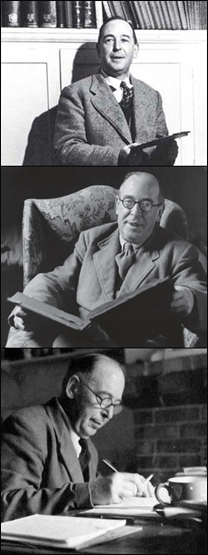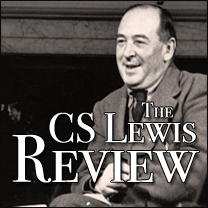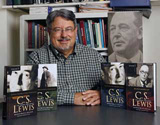
C. S. Lewis: My Mentor
December 24th, 2007 | Skip to comments
I am not an adult convert to Christianity who became enamored of C. S. Lewis through an encounter with his prodigiously passionate rationalism on behalf of the faith. I did not read his Narnia books as a child, and I had never heard of him or his splendidly baptized imagination before I reached the age of 19. I met him in the least likely setting for someone of my rigid religious upbringing and propensity for legalistic exclusivism: at the very fundamentalist Bible college where I was learning “apologetics” in order to refute the “false doctrines” of Baptists and Presbyterians, expose the worldly syncretism of deluded Catholics and Lutherans, and, yes, scoff at the “via media” offered by wayward Anglicans.
It was Lewis, the mere Christian, who drew me in, taught me the height, depth, and breadth of God’s love, and rescued me from the sectarian cave I’d been captive to from childhood forward. Until I had met Jack, Christianity was a private club of blueprint scanners who saw in the New Testament only “the New Testament church”—and its membership criteria denying entrance to people of all Christian persuasions who could not run successfully (i.e., blindly) the gauntlet of narrowness and idiosyncrasy that passed for “the one true church.”
Lewis’s brave call for unity in diversity, albeit according to a profound orthodoxy shaped by the apostolic tradition believed by everybody, everywhere over the centuries of the church, strangely kindled my heart, and showed me a worthy path left untrod by so many self-styled ecumenists, unity-mongers and would-be “restorationists” in the 20th Century. This “unscrupulous” God was neither trickster nor magician, and willingly sought my soul through any means necessary, heart or mind, imagination or intellect. Lewis’s own life exemplified the dramatic reversals one must face in Maledil’s universe: not the “mouse’s search for the cat,” but the Father’s pursuit of the Prodigal, “veiled in flesh,” the Hound of Heaven tracks me down with or without my “right doctrine.”
The more Lewis I read, the more my sly mentor taught me not to trust my instincts, but rather to surrender them: better to reign in heaven than to serve myself in Hell, the land of “incessant autobiography.” My allegiance, he led me to see, could only be to the Incarnate Miracle Maker who was not just the Author of me, but of Everything. I had to trade in my mess of pottage (doctrinal sureties and hermeneutical certainties) for a better blessing: the privilege of knowing Him, a secure knowledge that makes all other so-called knowledge mere nonsense.
 Owen Barfield, longtime friend of Lewis, once wrote, in the preface to a volume of essays about Lewis that I had the privilege of editing, that “Somehow what Lewis thought about everything was secretly present in what he said about anything.” Lewis’s life was, in other words, thoroughly integrated, a man whose presuppositions and convictions about life, faith, and reality, were centered in God and manifested themselves in all that he attempted.
Owen Barfield, longtime friend of Lewis, once wrote, in the preface to a volume of essays about Lewis that I had the privilege of editing, that “Somehow what Lewis thought about everything was secretly present in what he said about anything.” Lewis’s life was, in other words, thoroughly integrated, a man whose presuppositions and convictions about life, faith, and reality, were centered in God and manifested themselves in all that he attempted.
What an integration! Those who try to read through the entire Lewis corpus confess that they receive an education in history, philology, sociology, philosophy, and theology so extensive and exhilarating that others seem thin and frivolous in comparison. While Lewis caricatured himself as perhaps a dinosaur, among the “last of the Old Western Men,” many like the blindfolded Christian I once was, continue to see him as the forerunner of what will be the triumph of men and women of Biblical faith over an age that derides the very possibility of finding, understanding, embracing, and obeying truth.
What has Jack, my unlikely tutor, taught me?
- How not to be intimidated by the age in which I live.
- How to anticipate and find patience in answering questions about my faith without losing hope.
- How to integrate a Christian worldview with my vocation, my family life, and my inner self.
- How to long for God and seek true joy.
Is there a more worthy legacy or more telling testimony to the effectiveness of one’s earthly mentor?




Bruce,
Very well expressed. I’m glad the Hound of Heaven tracked me down to apprehend me…. I’m a true Prodigal, covered in the Father’s robe of love, feasting at His table, not deserving, but certainly welcomed.
Comment by John — 28 February 2008 @ 3:36 PM